Owning a BMW is a testament to one’s appreciation for precision engineering, performance, and luxury. However, maintaining the high standards of a BMW requires proper care and attention. Unfortunately, many BMW owners unknowingly engage in habits and practices that can damage their car’s performance and lead to costly repairs. Understanding these pitfalls is crucial for preserving the longevity and driving pleasure of a BMW.
Some of the most common mistakes BMW owners make include neglecting regular maintenance, using low-quality fuel, and ignoring warning lights on the dashboard. Skipping essential services like oil changes, brake inspections, and fluid replacements can lead to significant mechanical issues. Additionally, the use of non-original equipment manufacturer (OEM) parts can compromise the vehicle’s performance and reliability. Other detrimental habits include driving aggressively, neglecting tire maintenance, and postponing necessary repairs.
In this article, we will explore ten specific things BMW owners do that damage their car’s performance. By identifying these mistakes and understanding their consequences, BMW owners can take proactive steps to avoid them and ensure their vehicles remain in peak condition. With proper care and attention, BMW owners can continue to enjoy the unparalleled driving experience that their cars offer.
1. Neglecting Regular Maintenance
Regular maintenance is essential for keeping a BMW in optimal condition. Skipping scheduled services such as oil changes, brake inspections, and fluid replacements can lead to significant mechanical issues and reduced performance. BMW engines are finely tuned machines that require regular care to operate efficiently. Ignoring maintenance can result in sludge buildup, increased friction, and eventual engine damage.
For example, failing to change the engine oil regularly can cause the oil to degrade and lose its lubricating properties. This can lead to increased friction and wear on engine components, reducing the engine’s efficiency and lifespan. Additionally, old oil can form sludge, which can clog oil passages and lead to engine failure. To avoid these issues, BMW owners should adhere to the manufacturer’s recommended maintenance schedule and keep accurate records of all completed services. This ensures that the engine remains clean and well-lubricated, reducing the risk of costly repairs and maintaining optimal performance.
Brake maintenance is another critical aspect of regular maintenance. The braking system is essential for the safety and performance of the vehicle. Neglecting brake maintenance can lead to reduced braking efficiency, increased stopping distances, and potential brake failure. Regular brake inspections and timely replacement of brake pads, rotors, and brake fluid are necessary to ensure the braking system operates effectively. Ignoring these maintenance tasks can result in costly repairs and compromise the safety of the vehicle.
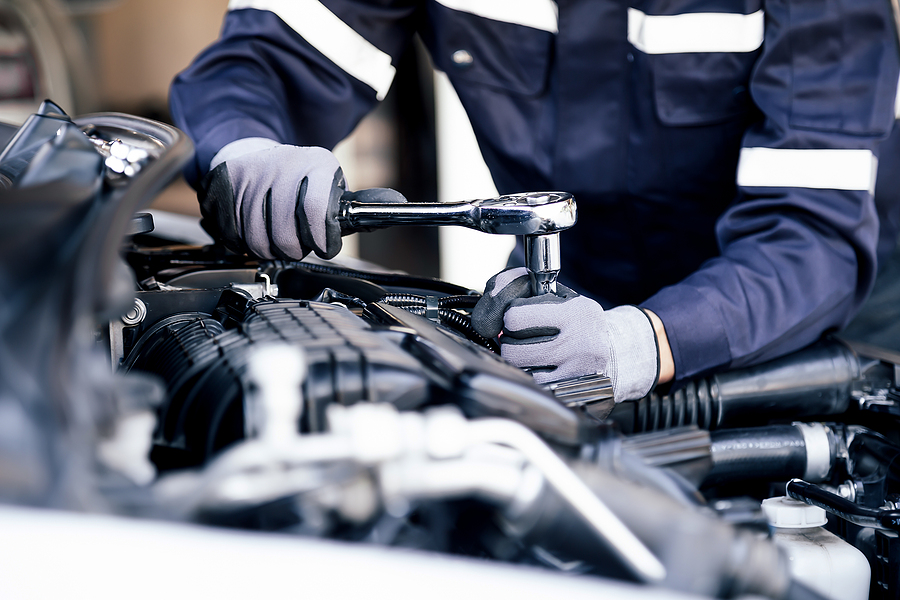
Fluid replacements are also crucial for maintaining a BMW’s performance. Transmission fluid, coolant, and brake fluid all play vital roles in the proper functioning of the vehicle’s systems. Over time, these fluids can degrade and become contaminated, reducing their effectiveness. Regularly changing and maintaining these fluids ensures that the vehicle’s systems operate smoothly and efficiently. For example, old transmission fluid can cause shifting issues and damage the transmission, while old coolant can lead to overheating and engine damage. By following the recommended maintenance schedule for fluid changes, BMW owners can prevent these issues and keep their vehicles running smoothly.
Neglecting regular maintenance is a costly mistake that can lead to significant mechanical issues and reduced performance for BMW owners. Adhering to the manufacturer’s recommended maintenance schedule, keeping accurate records of completed services, and regularly inspecting and replacing critical components and fluids are essential for maintaining the vehicle’s optimal condition. By taking proactive measures, BMW owners can avoid costly repairs and enjoy a reliable, high-performing vehicle.
2. Using Low-Quality Fuel
BMW engines are designed to run on high-octane fuel to achieve optimal performance. Using low-quality or incorrect fuel can lead to knocking, reduced efficiency, and potential engine damage. The higher octane rating of premium fuel helps prevent engine knocking, which occurs when the air-fuel mixture in the engine’s cylinders ignites prematurely. Knocking can cause increased wear on engine components and, over time, can lead to significant damage.
One of the key reasons for using premium fuel in a BMW is to ensure smooth combustion and prevent carbon buildup. Low-quality fuel can contain impurities and additives that can lead to the formation of carbon deposits on the intake valves, fuel injectors, and combustion chambers. These deposits can impair engine performance, reduce fuel efficiency, and increase emissions. Premium fuel often contains detergent additives that help keep the engine clean and prevent the buildup of harmful deposits.
Using low-quality fuel can also affect the vehicle’s emissions control systems. BMW vehicles are equipped with advanced emissions control systems designed to reduce harmful pollutants. Low-quality fuel can interfere with these systems, leading to increased emissions and potential failure of emissions tests. This can result in costly repairs and fines for non-compliance with emissions regulations. Using the recommended premium fuel ensures that the emissions control systems operate effectively and comply with environmental standards.

In addition to performance and emissions concerns, using low-quality fuel can void the vehicle’s warranty. BMW’s warranty terms often specify the use of premium fuel to ensure optimal performance and reliability. If low-quality fuel is used and it leads to engine damage or other issues, warranty claims may be denied, leaving the owner responsible for the full cost of repairs. To avoid these problems, BMW owners should always use the recommended fuel grade specified in the owner’s manual.
Moreover, using premium fuel can improve driving experience and performance. High-octane fuel allows the engine to produce more power and torque, resulting in smoother acceleration and better responsiveness. This is particularly important for BMW owners who appreciate the performance and driving dynamics of their vehicles.
Using low-quality fuel is a costly mistake that can lead to engine knocking, carbon buildup, increased emissions, and potential warranty issues. BMW owners should always use the recommended premium fuel to ensure their vehicles perform at their best and enjoy a longer lifespan. By investing in high-quality fuel, BMW owners can protect their engines, maintain optimal performance, and avoid costly repairs.
3. Ignoring Warning Lights
Warning lights on the dashboard are designed to alert drivers to potential issues that require immediate attention. Ignoring these lights can lead to serious mechanical problems and costly repairs for BMW owners. Modern BMW vehicles are equipped with advanced onboard diagnostic systems that monitor various components and systems, alerting the driver to potential issues through warning lights.
One of the most critical warning lights is the check engine light. This light can indicate a wide range of issues, from minor problems like a loose gas cap to more serious issues like engine misfires or emissions system malfunctions. Ignoring the check engine light can lead to significant engine damage and expensive repairs. When the check engine light comes on, it is essential to have the vehicle diagnosed and repaired promptly by a qualified technician.
Another important warning light is the brake system warning light. This light can indicate low brake fluid levels, worn brake pads, or other issues with the braking system. Ignoring this warning can compromise braking performance and increase the risk of accidents. Addressing brake system issues promptly is crucial for ensuring the safety of the vehicle and its occupants.
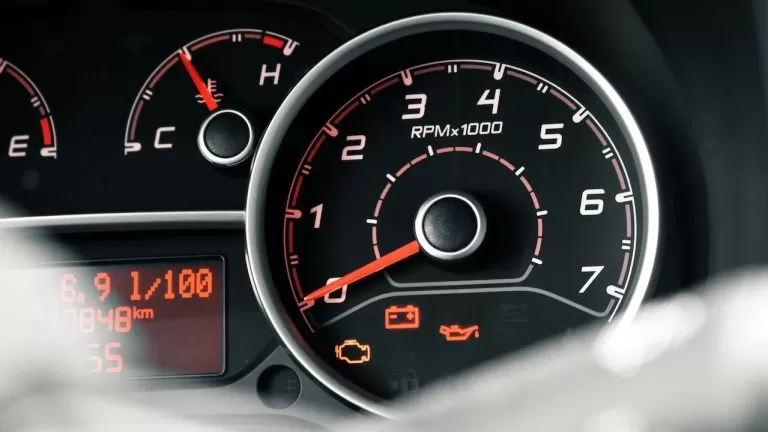
The tire pressure monitoring system (TPMS) warning light is another indicator that should not be ignored. This light alerts the driver to low tire pressure, which can lead to uneven tire wear, reduced fuel efficiency, and increased risk of tire blowouts. Checking and adjusting tire pressure as soon as the TPMS light comes on is essential for maintaining optimal tire performance and safety.
Other warning lights that BMW owners should pay attention to include the battery warning light, oil pressure warning light, coolant temperature warning light, and transmission warning light. Each of these lights indicates a specific issue that requires immediate attention to prevent further damage and ensure the vehicle’s reliability.
To avoid the costly consequences of ignoring warning lights, BMW owners should familiarize themselves with the meaning of each warning light and take prompt action when they appear. The owner’s manual provides detailed information about the various warning lights and their meanings. When a warning light comes on, it is essential to have the vehicle inspected and repaired by a qualified technician as soon as possible.
Ignoring warning lights on the dashboard is a costly mistake that can lead to serious mechanical issues and expensive repairs. BMW owners should familiarize themselves with the meaning of each warning light and take prompt action when they appear. By addressing potential issues early, BMW owners can prevent further damage, ensure the safety of their vehicles, and avoid unnecessary expenses.
4. Skipping Oil Changes
Regular oil changes are crucial for maintaining the health of a BMW engine. Engine oil lubricates moving parts, reduces friction, and helps dissipate heat. Over time, oil can become contaminated with dirt, debris, and combustion byproducts, reducing its effectiveness. Skipping oil changes can result in increased wear on engine components, reduced performance, and potential engine failure.
Engine oil is vital in protecting the engine’s internal components from wear and damage. The oil creates a thin film between moving parts, reducing friction and preventing metal to metal contact. This lubrication is essential for maintaining the engine’s efficiency and longevity. When engine oil becomes contaminated or breaks down, it loses its lubricating properties, increasing the risk of friction and wear on critical engine components.
Skipping oil changes can also lead to the formation of sludge within the engine. Sludge is a thick, sticky substance that can clog oil passages and restrict the flow of oil to critical engine parts. This can result in inadequate lubrication, increased friction, and potential engine damage. Regular oil changes help prevent sludge buildup and ensure that the engine remains clean and well-lubricated.
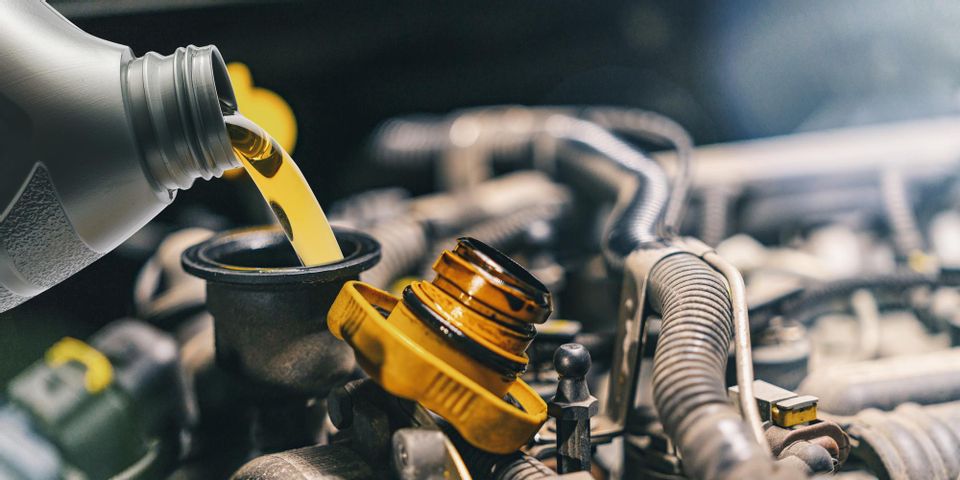
In addition to lubricating the engine, oil also helps dissipate heat generated during combustion. As the oil circulates through the engine, it absorbs and carries away excess heat, helping to regulate the engine’s temperature. Old or degraded oil is less effective at dissipating heat, which can lead to overheating and potential engine damage. Regular oil changes ensure the engine remains cool and operates at optimal temperatures.
Skipping oil changes can also impact the vehicle’s performance and fuel efficiency. Clean oil reduces friction and allows the engine to operate more smoothly and efficiently. Contaminated or degraded oil increases friction and can lead to decreased engine performance and reduced fuel efficiency. By following the manufacturer’s guidelines for oil change intervals, BMW owners can maintain their vehicle’s performance and fuel economy.
Skipping oil changes is a costly mistake that can lead to increased wear on engine components, sludge buildup, overheating, reduced performance, and potential engine failure. Regular oil changes are essential for maintaining the health of a BMW engine and ensuring optimal performance. BMW owners should adhere to the manufacturer’s recommended oil change intervals and use high-quality oil to keep their engines running smoothly and avoid unnecessary expenses.
5. Disregarding Power Steering Fluid Levels
Power steering fluid is essential for the smooth operation of the steering system in a BMW. It provides the necessary hydraulic pressure that allows for easier and more responsive steering. Disregarding power steering fluid levels can lead to increased steering effort, noise, and wear on the power steering pump. Regularly checking and maintaining power steering fluid levels is crucial for ensuring smooth and responsive steering.
Power steering fluid helps reduce friction and wear on the various components within the steering system, including the power steering pump, hoses, and steering rack. Over time, the fluid can become contaminated with dirt, debris, and metal particles, reducing its effectiveness. Low fluid levels can also lead to air entering the system, causing noise and making the steering feel heavy or unresponsive.
One common sign of low power steering fluid is a whining or groaning noise when turning the steering wheel. This noise is often caused by air bubbles in the fluid or a lack of lubrication in the pump. Ignoring this noise can lead to increased wear on the power steering pump and other components, eventually failing.
Regularly checking the power steering fluid level and condition is essential for maintaining the system’s performance. The power steering fluid reservoir is typically located near the engine, and most reservoirs have a dipstick or fill line to indicate the proper fluid level. If the fluid level is low, it is important to add the correct type of power steering fluid specified by BMW. Using the wrong type of fluid can lead to compatibility issues and reduced performance.
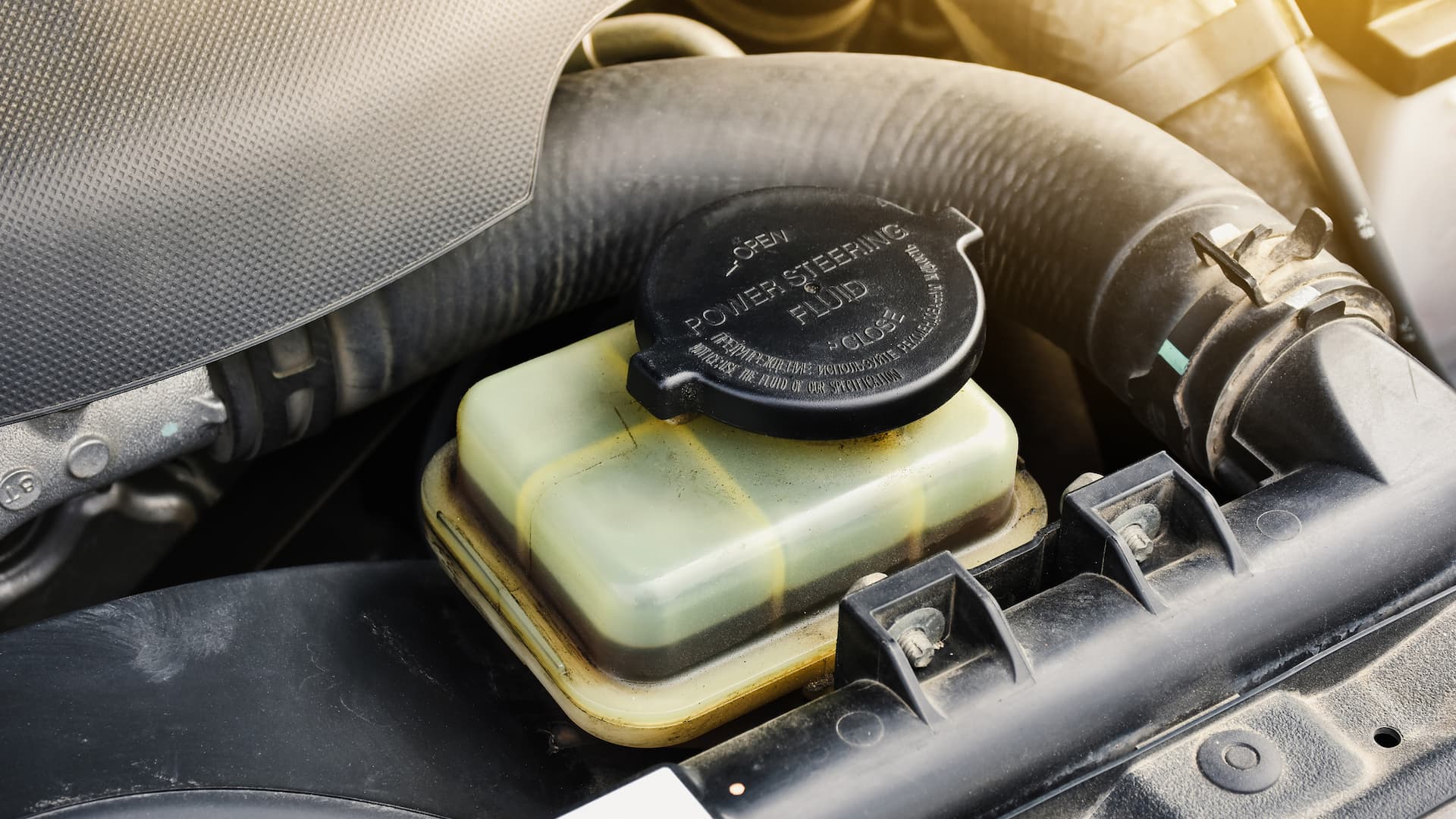
In addition to maintaining proper fluid levels, it is essential to inspect the power steering system for leaks. Leaks can occur in the hoses, pump, or steering rack, leading to a loss of fluid and reduced system performance. Regular inspections can help identify and address leaks before they cause significant damage. If a leak is detected, it is important to repair it promptly to prevent further issues.
The recommended interval for power steering fluid changes can vary depending on the specific BMW model and driving conditions. In general, it is advisable to change the power steering fluid every 30,000 to 60,000 miles or as indicated in the owner’s manual. Regular fluid changes help ensure that the fluid remains clean and effective, providing optimal lubrication and hydraulic pressure.
Disregarding power steering fluid levels is a costly mistake that can lead to increased steering effort, noise, and wear on the power steering pump. Regularly checking and maintaining power steering fluid levels, inspecting for leaks, and performing fluid changes according to the manufacturer’s recommendations are essential for ensuring smooth and responsive steering. By taking proactive measures, BMW owners can enjoy a more comfortable and reliable driving experience.
6. Neglecting Fuel System Cleanings
The fuel system in a BMW is responsible for delivering the proper amount of fuel to the engine for combustion. Over time, the fuel system can become clogged with deposits, affecting fuel flow and engine performance. Neglecting fuel system cleanings can lead to reduced fuel efficiency, poor engine performance, and increased emissions. Regularly cleaning the fuel system helps maintain optimal performance and efficiency.
The fuel system includes components such as the fuel injectors, fuel pump, fuel filter, and fuel lines. These components work together to ensure that the engine receives the correct amount of fuel for combustion. Over time, fuel injectors can become clogged with carbon deposits, reducing their ability to spray fuel evenly. This can result in rough idling, misfires, and decreased fuel efficiency.
Regularly cleaning the fuel system helps remove these deposits and restore proper fuel flow. Fuel system cleaners are available that can be added to the fuel tank to help clean the injectors and other components. These cleaners contain detergents that break down and remove deposits, improving fuel flow and combustion efficiency. It is important to use a fuel system cleaner that is compatible with BMW engines to avoid any potential damage.
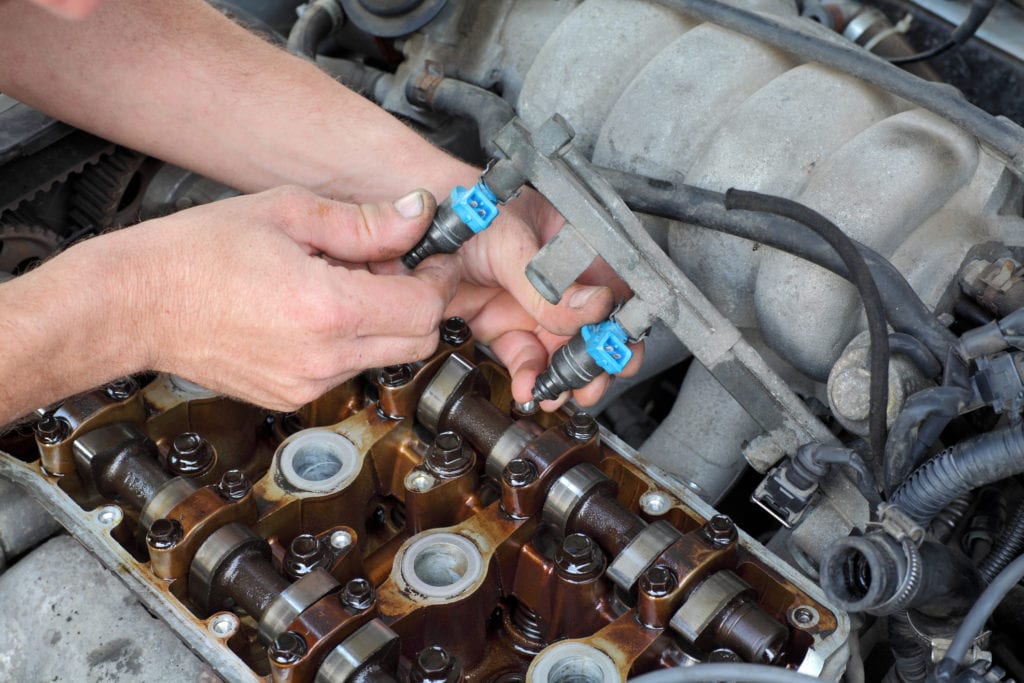
In addition to using fuel system cleaners, it is essential to replace the fuel filter regularly. The fuel filter traps dirt, debris, and contaminants from the fuel before it reaches the engine. Over time, the filter can become clogged, reducing fuel flow and affecting engine performance. Replacing the fuel filter according to the manufacturer’s recommendations helps ensure that the fuel system remains clean and efficient.
Another important aspect of fuel system maintenance is using high-quality fuel. Low-quality or contaminated fuel can introduce additional deposits and contaminants into the fuel system, increasing the risk of clogging and reduced performance. Using high-quality fuel with the recommended octane rating helps maintain the cleanliness and efficiency of the fuel system.
Regular inspections of the fuel system are also crucial for identifying potential issues early. This includes checking for leaks, inspecting the condition of the fuel lines and injectors, and ensuring that the fuel pump is operating correctly. Addressing any issues promptly helps prevent further damage and maintains optimal fuel system performance.
Neglecting fuel system cleanings is a costly mistake that can lead to reduced fuel efficiency, poor engine performance, and increased emissions. Regularly cleaning the fuel system, using high-quality fuel, and replacing the fuel filter according to the manufacturer’s recommendations are essential for maintaining optimal performance and efficiency. By taking proactive measures, BMW owners can ensure their fuel system remains clean and efficient, providing a more enjoyable and reliable driving experience.
7. Ignoring Tire Rotation
Tires are a critical component of a vehicle’s performance and safety. Over time, tires can wear unevenly due to various factors, such as weight distribution and driving habits. Ignoring tire rotation can lead to uneven wear, reduced traction, and decreased tire life. Regularly rotating the tires helps ensure even wear, extending their lifespan and maintaining optimal traction and handling.
Tire rotation involves moving the tires from one position to another on the vehicle to ensure that they wear evenly. This process helps distribute the wear more evenly across all four tires, preventing any one tire from wearing out faster than the others. Regular tire rotation is essential for maintaining balanced handling and traction, especially during acceleration, braking, and cornering.
One common sign of uneven tire wear is increased road noise or vibrations while driving. Unevenly worn tires can also cause the vehicle to pull to one side, affecting steering and handling. Ignoring these signs can lead to further tire damage and reduce the performance of the vehicle.
The recommended interval for tire rotation can vary depending on the specific BMW model and driving conditions. In general, it is advisable to rotate the tires every 5,000 to 7,500 miles or as indicated in the owner’s manual. Rotating the tires at regular intervals helps ensure even wear and extends their lifespan, reducing the need for frequent replacements.
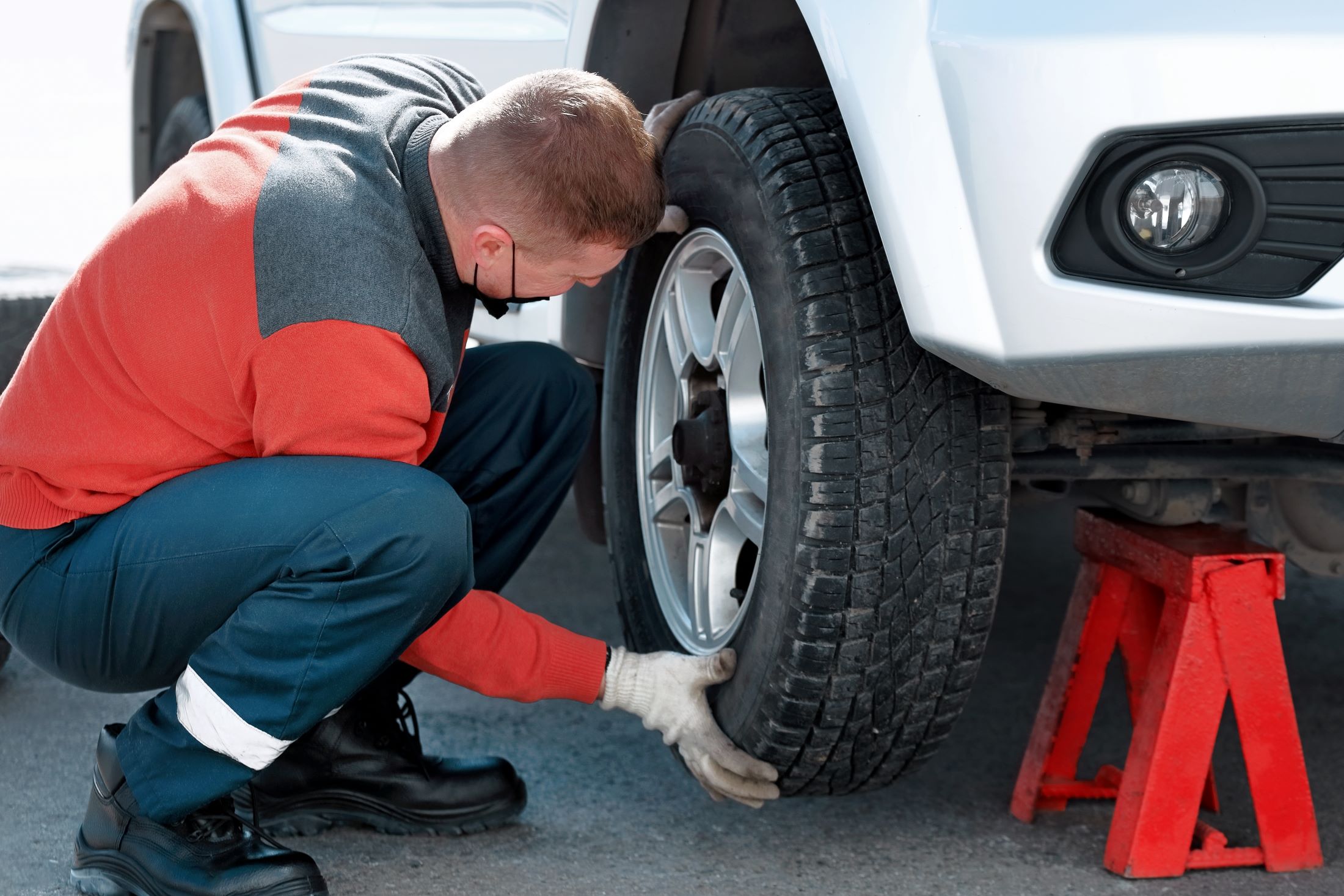
There are several common tire rotation patterns, including front-to-back, cross-pattern, and diagonal-pattern rotations. The appropriate pattern depends on the specific vehicle and tire type. It is important to follow the manufacturer’s recommendations for the correct rotation pattern to ensure optimal tire performance and longevity.
In addition to regular tire rotation, it is essential to maintain proper tire pressure and alignment. Proper tire pressure ensures that the tires make consistent contact with the road, improving traction and reducing wear. Regular wheel alignment checks and adjustments help ensure that the tires wear evenly and that the vehicle handles properly.
Regularly inspecting the tires for signs of damage, such as cuts, punctures, or bulges, is also crucial for maintaining tire safety and performance. Damaged tires should be repaired or replaced promptly to prevent further issues and ensure safe driving conditions.
Ignoring tire rotation is a costly mistake that can lead to uneven wear, reduced traction, and decreased tire life. Regularly rotating the tires, maintaining proper tire pressure and alignment, and inspecting for damage is essential for ensuring optimal tire performance and safety. By taking proactive measures, BMW owners can enjoy a smoother and more reliable driving experience with longer-lasting tires.
8. Skipping Drive Belt Replacements
Drive belts in a BMW are responsible for powering various engine components, such as the alternator, water pump, and air conditioning compressor. Over time, these belts can wear out, crack, or become loose. Skipping drive belt replacements can lead to the failure of these critical components and potential engine damage. Regularly inspecting and replacing worn drive belts is essential for maintaining engine performance and preventing breakdowns.
Drive belts, also known as serpentine belts, are made of durable rubber and are designed to last for a specific period. However, they are subject to wear and tear due to the constant motion and heat generated by the engine. Over time, drive belts can develop cracks, fraying, or glazing, indicating that they are nearing the end of their lifespan.
One common sign of a worn drive belt is a squealing or chirping noise coming from the engine compartment, especially when starting the engine or turning on the air conditioning. This noise is often caused by a loose or slipping belt. Ignoring this noise can lead to the belt breaking, which can cause the loss of power to critical engine components and result in an unexpected breakdown.
Regularly inspecting the drive belts for signs of wear and damage is crucial for identifying potential issues early. This includes checking for cracks, fraying, glazing, and proper tension. If any signs of wear or damage are detected, it is important to replace the drive belt promptly to prevent further issues.
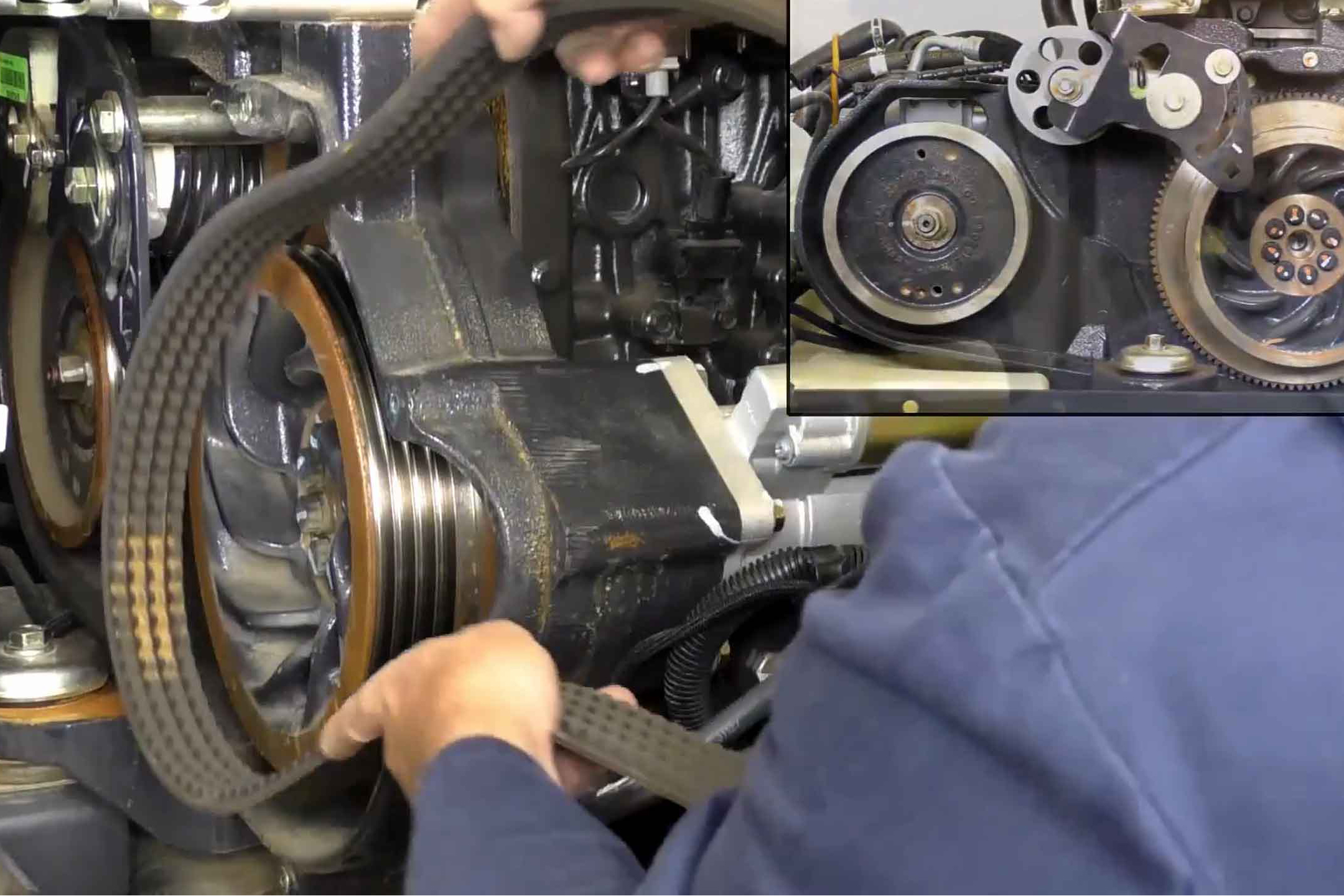
The recommended interval for drive belt replacement can vary depending on the specific BMW model and driving conditions. In general, it is advisable to replace the drive belt every 60,000 to 100,000 miles or as indicated in the owner’s manual. Regular replacement ensures that the belt remains in good condition and provides reliable power to the engine components.
In addition to the drive belt, it is essential to inspect and maintain other related components, such as the belt tensioner and pulleys. The belt tensioner helps maintain proper tension on the drive belt, preventing it from slipping or coming loose. Worn or damaged tensioners and pulleys can cause the belt to wear out more quickly and lead to component failure. Regular inspections and maintenance of these components help ensure the reliability of the belt drive system.
Skipping drive belt replacements is a costly mistake that can lead to the failure of critical engine components. Regularly inspecting and replacing worn drive belts, tensioners, and pulleys ensures that the engine systems operate smoothly and prevent breakdowns. By taking proactive measures, BMW owners can maintain the performance and reliability of their vehicles and avoid unnecessary expenses.
9. Using Improper Tire Pressure
Maintaining the correct tire pressure is essential for optimal vehicle performance, safety, and fuel efficiency. Using improper tire pressure can have several negative effects, including uneven tire wear, poor handling, reduced fuel efficiency, and increased risk of blowouts. Regularly checking and maintaining the proper tire pressure ensures that the vehicle handles properly and that tires wear evenly.
Under-inflated tires create more rolling resistance, which requires the engine to work harder to move the vehicle. This increased resistance results in reduced fuel efficiency and higher fuel costs over time. Additionally, under-inflated tires can cause the outer edges of the tire tread to wear more quickly, reducing the lifespan of the tires. Over-inflated tires, on the other hand, can cause the center of the tire tread to wear more rapidly, also leading to premature tire replacement.
Proper tire pressure is crucial for maintaining optimal handling and traction. Under-inflated tires can make the vehicle feel sluggish and less responsive, while over-inflated tires can lead to a harsh and uncomfortable ride. Both scenarios can compromise the vehicle’s stability and increase the risk of accidents, especially in adverse weather conditions.
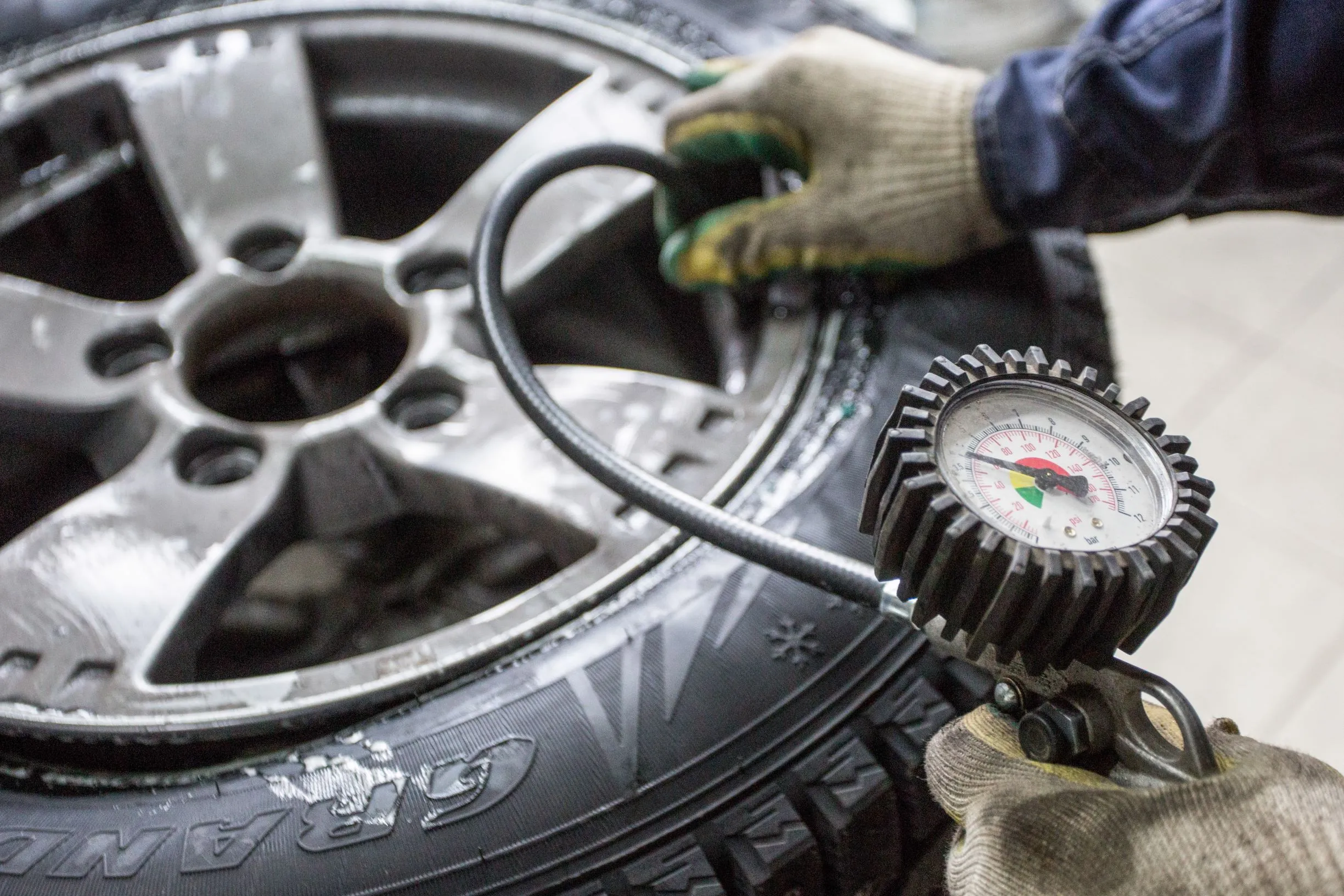
To ensure the correct tire pressure, BMW owners should check their tire pressure at least once a month and before long trips. Tire pressure should be checked when the tires are cold, as driving can cause the tires to heat up and give an inaccurate reading. The recommended tire pressure for each BMW model can be found in the owner’s manual or on a sticker located on the driver’s side door jamb.
In addition to maintaining the correct tire pressure, it is important to regularly inspect the tires for signs of damage, such as cuts, punctures, or bulges. Damaged tires can compromise safety and should be repaired or replaced promptly. Rotating the tires regularly can also help ensure even wear and extend the lifespan of the tires. The recommended tire rotation interval can be found in the owner’s manual or service guidelines.
Proper tire maintenance also involves balancing and aligning the tires. Unbalanced tires can cause vibrations and uneven wear, while misaligned tires can lead to steering issues and uneven tire wear. Regular tire balancing and alignment checks can help prevent these problems and maintain optimal tire performance.
Using improper tire pressure is a costly mistake that can lead to uneven tire wear, poor handling, reduced fuel efficiency, and compromised safety. Regularly checking and maintaining the correct tire pressure, inspecting for damage, and performing tire rotations, balancing, and alignment is essential for ensuring optimal tire performance and longevity. By taking proactive measures, BMW owners can enjoy a safer and more comfortable driving experience.
10. Failing to Maintain the Battery
The battery is a critical component of a BMW’s electrical system, providing the power needed to start the engine and operate various electrical accessories. Neglecting battery maintenance can result in unexpected breakdowns and the need for costly replacements. Regularly testing the battery’s charge level, cleaning the terminals, and ensuring proper connections are essential for maintaining a reliable electrical system.
One of the most important aspects of battery maintenance is checking the battery’s charge level and condition. Over time, batteries can lose their charge and become less effective at holding a charge. This can result in slow engine cranking, dimming headlights, and other electrical issues. Regularly testing the battery’s charge level and voltage can help identify potential problems before they lead to a complete failure. Many auto parts stores and service centers offer free battery testing services, making it easy for BMW owners to monitor their battery’s health.
Another crucial aspect of battery maintenance is cleaning the battery terminals and connections. Corrosion can build up on the battery terminals over time, leading to poor electrical connections and reduced performance. Regularly inspecting the battery terminals and cleaning them with a mixture of baking soda and water can help prevent corrosion and ensure a strong electrical connection. It is also important to check the battery cables for any signs of wear or damage and replace them if necessary.
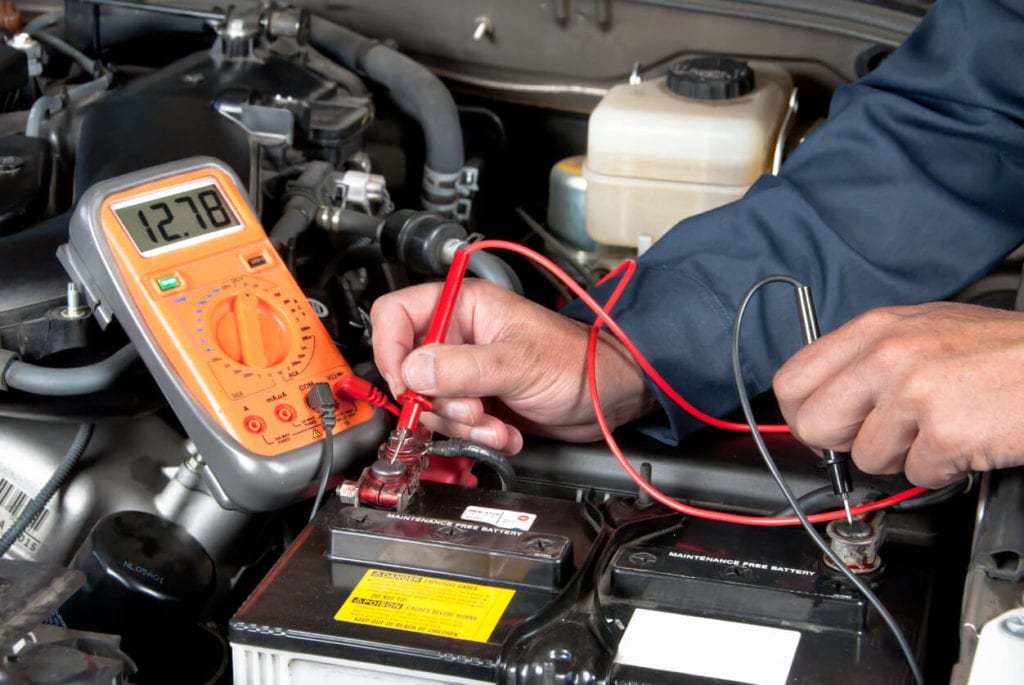
Maintaining proper fluid levels in the battery, particularly in older models with removable caps, is also essential. Low fluid levels can cause the battery to overheat and fail. If the fluid levels are low, distilled water can be added to bring them up to the proper level. However, it is crucial to exercise caution when handling battery fluids, as they can be corrosive and harmful.
Cold weather can significantly impact battery performance. Low temperatures can reduce the battery’s ability to hold a charge and make it more challenging to start the engine. BMW owners should ensure their battery is in good condition before the onset of cold weather and consider using a battery heater or trickle charger to maintain the battery’s charge during the winter months.
The typical lifespan of a car battery is around three to five years. As the battery ages, it becomes less effective at holding a charge and more prone to failure. BMW owners should be proactive in replacing their batteries every four years or sooner if they notice signs of reduced performance. Regularly replacing the battery can help avoid unexpected breakdowns and ensure reliable performance.
Failing to maintain the battery is a costly mistake that can lead to unexpected breakdowns and expensive replacements. Regularly testing the battery’s charge level, cleaning the terminals, checking fluid levels, and replacing the battery as needed are essential steps in maintaining a reliable electrical system. By taking these proactive measures, BMW owners can ensure their battery remains in good condition and avoid unnecessary expenses.
By avoiding these ten unique pitfalls, BMW owners can ensure their vehicles remain in peak condition and deliver a high-quality driving experience. Regular maintenance, using high-quality parts, and addressing issues promptly are key to preserving the performance and longevity of a BMW.

